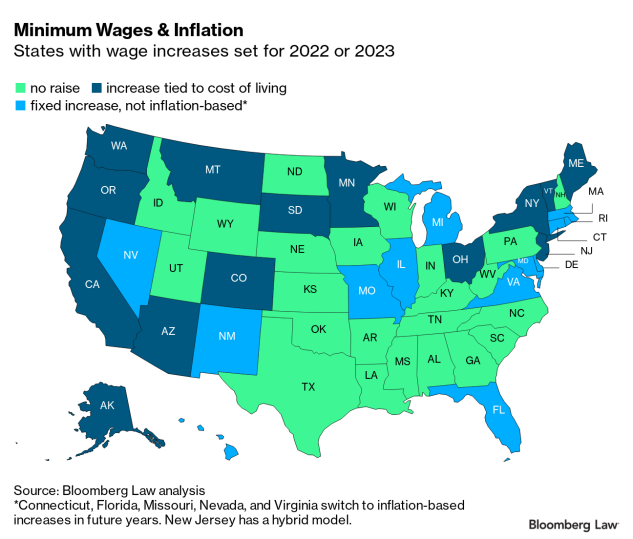Inflation Rates And Minimum Wages
Many cities’ and states’ minimum wages are tied to Inflation rates. Over the past decade, the minimum wage has grown by a few cents each year. This year’s unusually high inflation is likely to drive hourly wage jumps of $1 or more in some locales.
About a dozen states with automatic increases tied to the inflation rate will be affected in 2023. Nearly twice that number of cities and counties with minimum wages tied to the Consumer Price Index will also be affected. The changes that will take effect January 1, 2023, will be announced in October or November.
The larger minimum wage increases could provide help to low-wage hourly workers. These increases may increase pressure on some small businesses still recovering from business interruptions during the Covid-19 pandemic. The current labor market has already driven entry-level wages up significantly in most communities which may limit the impact on many businesses that must pay above minimum wage to attract workers.
The annual inflation rate nationally stood at 8.5% in July, according to the latest CPI figures released by the US Bureau of Labor Statistics.
One example of the impact of an inflation-tied minimum wage increase is Denver. Denver is an early indicator of where minimum wages might be headed. The Denver Department of Finance says the local minimum wage will increase to $17.29 starting January 1, 2023. That’s up from the current $15.87.
Minimum Wage And Inflation Map (Bloomberg Law)

Increases will vary greatly from state to state.
The size of increases is likely to vary widely. The exact inflation source used, the current minimum wage, and minimum wage growth caps will make the final increases in each community unique.
Some communities have a fixed increase, many just raised the minimum wage in July, and pending legislation further diversifies the actual increases that will take place in 2023.
For example, California and Minnesota already have caps in place that limit the growth of the minimum wage in those states. California caps the annual increases at 3.5%, and Minnesota caps them at 2.5%.
With inflation at 8.5%, state legislatures and city councils may be motivated to consider mitigation policies, such as capping the annual increases.
Much of the information in this article was sourced from Bloomberg Tax.
